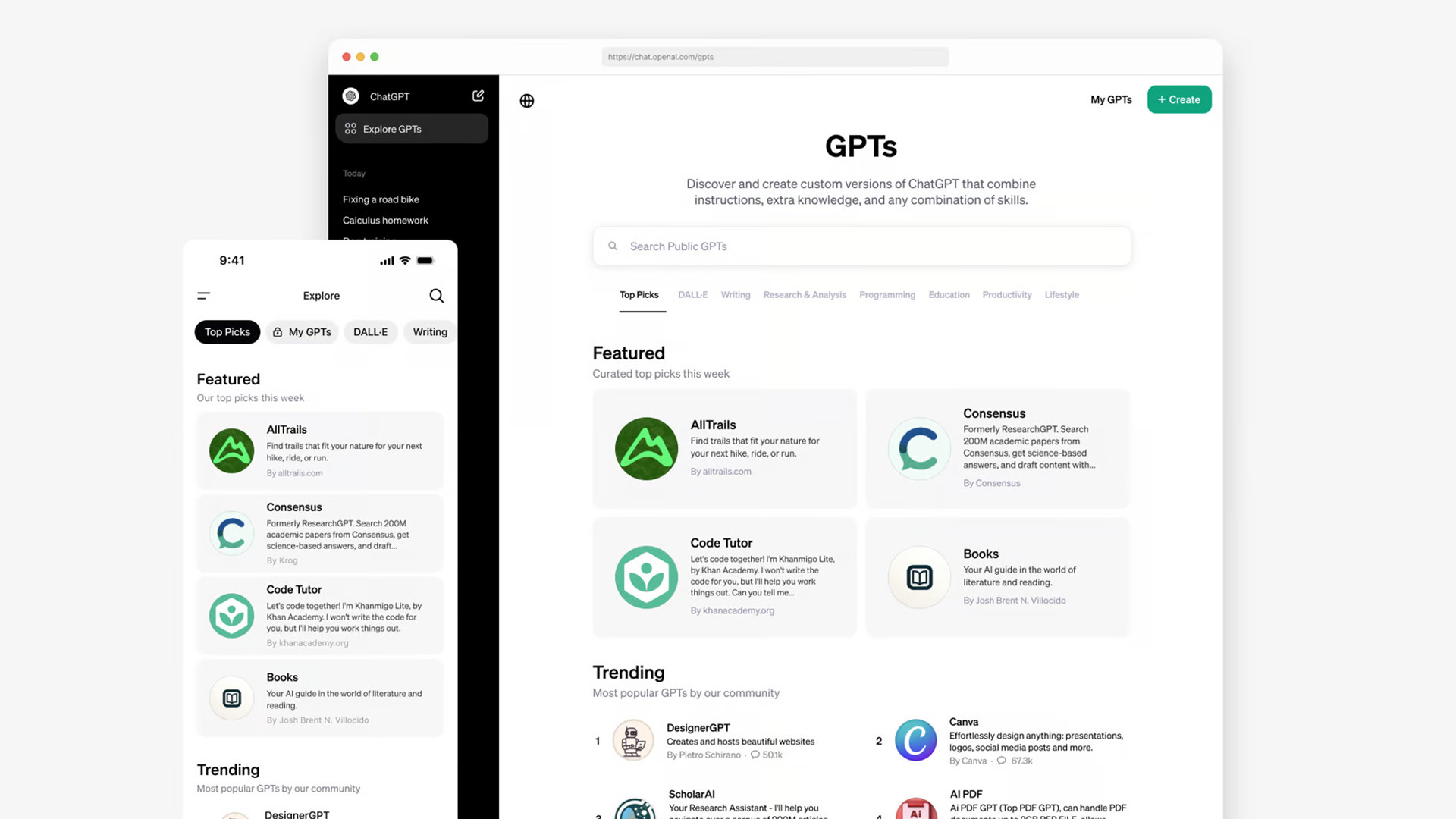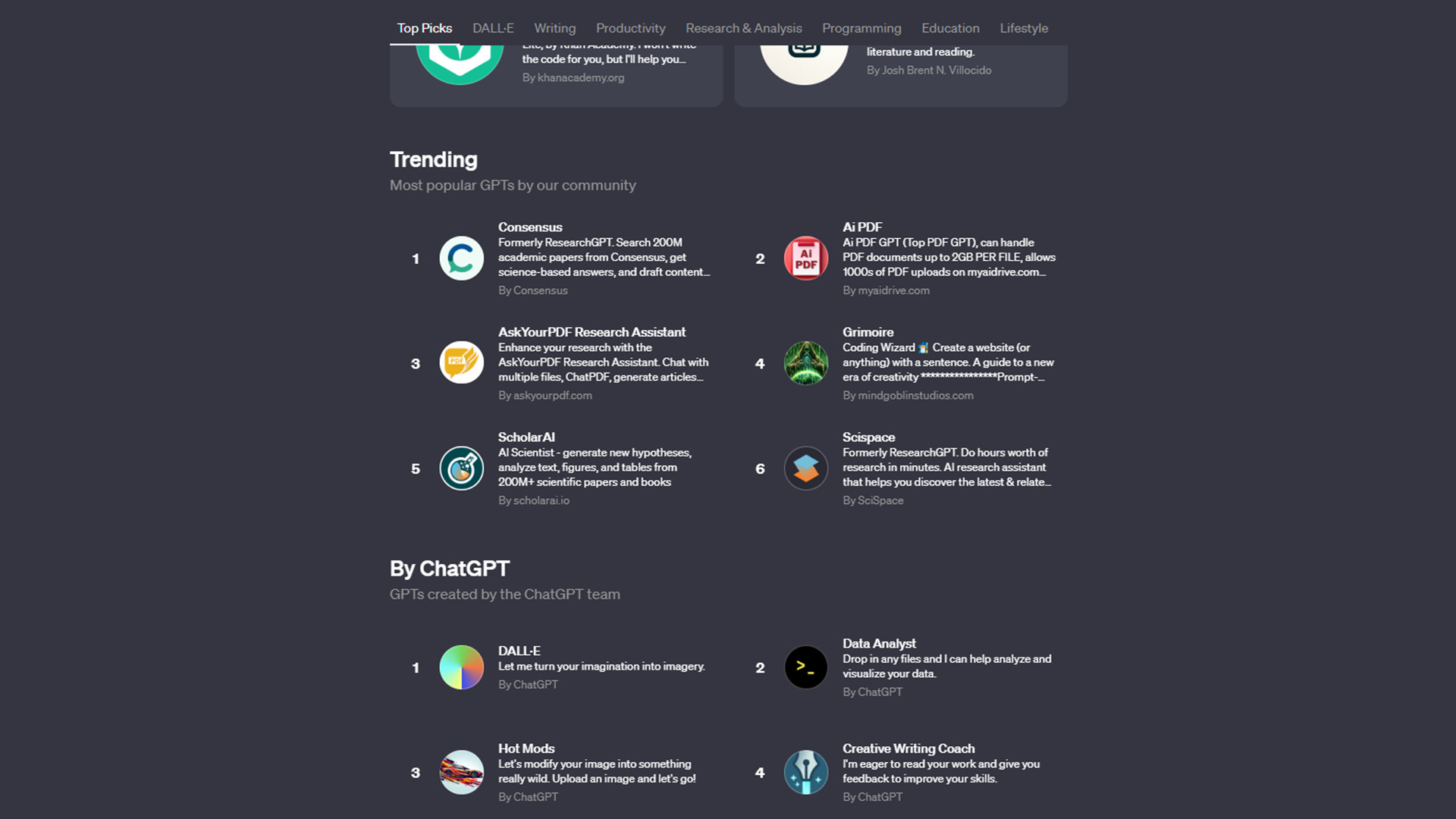ChatGPT gets its equivalent of the App Store – here are the best early GPTs
One of the best chatbots will suggest nature trails to explore

OpenAI has officially launched its GPT Store, allowing a select group of users and official partners to share customized chatbots with the community.
The platform won't be available to the wider public, according to the company You must have a subscription to ChatGPT Plus ($20 / £16 a month), Enterprise, or the newly formed Teams plan. Once you buy the subscription, you’ll be given access to a variety of GPTs across multiple categories. These include writing, programming, and art generation – some will even provide lifestyle advice. One, in particular, can help you refine designs for a tattoo you’re thinking of getting.
The GPT Store was originally announced this past November during the company’s first DevDay conference. It was shown alongside OpenAI’s then-new create-a-chatbot service. The store was supposed to open later that month but was delayed multiple times, most likely as a consequence of the sudden ousting and reinstatement of CEO Sam Altman.
Curated chatbot
Although the average person can’t try out chatbots, you can head over to the store’s page right now to see what’s available. Make sure you’re not logged into your account: if you are, you’ll get a message telling you to subscribe to ChatGPT Plus. OpenAI will highlight four GPTs at the top of the page every week. At the time of writing, AllTrails, Consensus, Code Tutor, and Books are being recommended.
The first one, AllTrails, will suggest nature trails for you to explore. Consensus, formerly known as ResearchGPT, has access to 200 million academic papers and can answer your tough science questions. Code Tutor, developed by the education platform Khan Academy, will look over your recently made computer code and make suggestions on how to improve it. Finally, there’s Books, the most mysterious of the bunch. Its description is rather vague, however, if we had to guess what it does, we'd say it provides book recommendations.

Below that are a couple of other lists highlighting chatbots currently trending among the community and those made by OpenAI’s internal team. There are plans to implement a revenue program that will allow people to make money from their creations. Creators will “be paid based on user engagement” with their chatbots. Details are light at the moment. All that’s known currently is it’ll launch sometime in Q1 2024 in the United States.
Follow the rules
Anybody with a subscription can create a GPT. OpenAI states you don’t need any coding skills, although you will need to follow usage policies and brand guidelines. It wants to keep things clean.
Sign up for breaking news, reviews, opinion, top tech deals, and more.
You can read the rules on the official website, but just to give you an idea, users cannot A) compromise people’s privacy, B) create an AI that may impair the well-being of others, or C) use the platform to spread misinformation. Break the rules, and the company will restrict your ability to share or monetize your work. If you run into any of these rogues on the GPT Store, OpenAI asks that you report them.
If you have a creation, you can share it by first saving your GPT and then selecting Everyone in the process. This gives all people on the platform access. Once done, you’ll need to “verify your Builder Profile” in the Settings menu. After you do all that, you should see your chatbot on the storefront.
While we have you check out TechRadar's list of seven tips for ChatGPT beginners. That generative AI can be a little tricky to use.
You might also like

Cesar Cadenas has been writing about the tech industry for several years now specializing in consumer electronics, entertainment devices, Windows, and the gaming industry. But he’s also passionate about smartphones, GPUs, and cybersecurity.